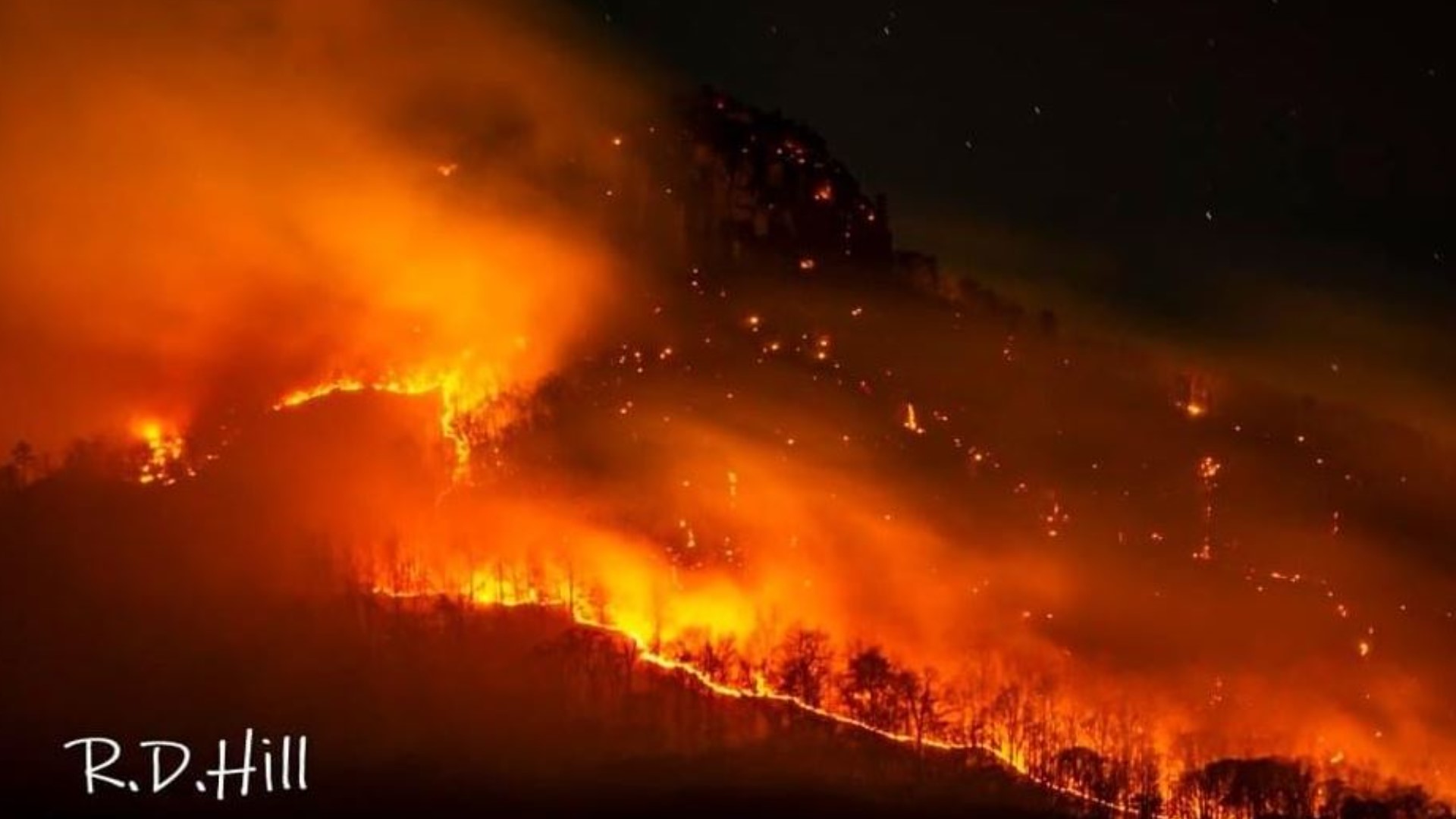GREENSBORO, N.C. — A burn ban has been issued for North Carolina due to hazardous forest fire conditions as a wildfire continues to burn in Pilot Mountain.
The North Carolina Department of Agriculture and Consumer Services said the burn ban took effect at 5 p.m. Monday and will stay in effect until further notice.
The ban prohibits all open burning in the affected counties, regardless of whether a permit was previously issued. The issuance of any new permits has also been suspended until the ban is lifted.
Those who violate the burn ban will face a $100 fine plus $183 court costs. Any person responsible for setting a fire may be liable for any expenses related to extinguishing the fire, according to the North Carolina Forest Service. State officials said fire departments and law enforcement officers will enforce the burn ban.
Answers to FAQ
Q: What is open burning?
A: Open burning includes burning leaves, branches or other plant material. In all cases, burning trash, lumber, tires, newspapers, plastics or other nonvegetative material is illegal.
Q: May I still use my grill, barbecue, or contained commercial fire pits?
A: Yes, if no other local ordinances prohibit their use.
Q: How should I report a wildfire?
A: Call 911 to report a wildfire.
Q: How should I report a person who intentionally starts a wildfire?
A: Call 911 to report a wildfire.
Q: My local fire marshal has also issued a burn ban for my county. What does this mean?
A: The burn ban issued by the N.C. Forest Service does not apply to a fire within 100 feet of an occupied dwelling. Local government agencies have jurisdiction over open burning within 100 feet of an occupied dwelling. The N.C. Forest Service has advised county fire marshals of the burning ban and has asked for their consideration of also implementing a burning ban. If a fire within a 100-foot area of a dwelling escapes containment, a North Carolina forest ranger may take reasonable steps to extinguish or control it. The person responsible for setting the fire may be liable for any expenses related to extinguishing the fire.
Q: Are there other instances that impact open burning?
A: Local ordinances and air quality regulations may impact open burning. For instance, outdoor burning is prohibited in areas covered by Code Orange or Code Red air quality forecasts. Learn more about air quality forecasts.
Q: Can I have a campfire when I go camping?
A: Campfires would be considered open burning and are not exempt from the burn ban. During a burn ban, campfires are prohibited.
Q: What can I do to protect my house against the risk of wildfire?
A: Learn about wildfire risk assessments and preparedness and prevention plans on the N.C. Forest Service website. You can also find out more information by visiting Resist Wildfire North Carolina.

